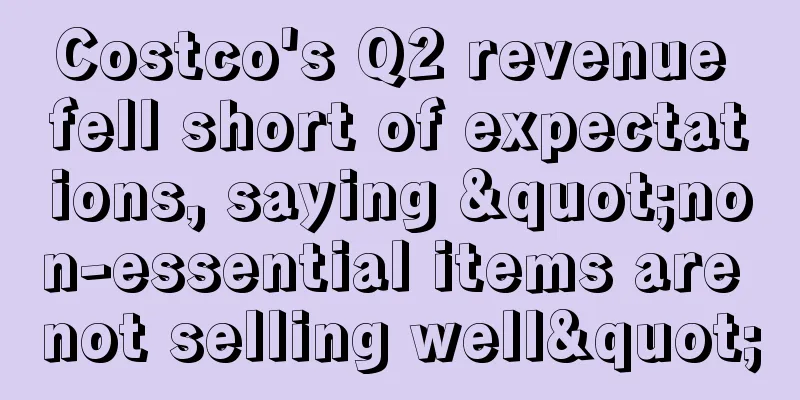Growth of paid retail membership in the United States has reached saturation, with Amazon Prime accounting for 53.1%

|
It is learned that in the past three years, the e-commerce sales boom brought about by the epidemic has driven many retailers in the United States to launch paid membership services, and the number of members and subscription revenue have also increased sharply. However, according to the latest data from eMarketer, the overall revenue growth of paid retail memberships in the United States is slowing down, and the market is becoming increasingly saturated.
According to reports, since 2020, Walmart, Best Buy, Sephora, Kroger and Albertsonss have launched new paid membership services. Most of these membership services adopt a model similar to Amazon Prime, with free shipping and delivery as the core. They also usually provide access to exclusive products, services and rewards programs.
Although the number of retailers offering paid membership services in the U.S. retail market continues to increase, the overall revenue growth rate is declining. After growing by more than 20% in the first two years of the outbreak, the growth rate of this indicator fell to single digits last year, indicating that the market is oversaturated. At present, the long-term growth prospects of paid retail membership in the United States remain unclear, especially under economic uncertainty. In the first two years of the epidemic, subscription revenue grew strongly, reaching pre-epidemic market expectations several years ahead of schedule.
While retail membership subscription revenue growth may accelerate in the long run, consumers are more cautious about spending on subscription services amid economic uncertainty.
In addition, retailers have expanded subscription services to delivery apps, fast-food chains, direct-to-consumer brands, and media platforms, and consumers are starting to feel subscription fatigue. As a result, retail membership subscription revenue growth will remain low until 2024.
Some retailers have an advantage in paid memberships. Amazon Prime is forecast to capture 53.1% of U.S. paid retail membership revenue this year, far ahead of its closest competitor, Costco, which has a share of only 9.5%, and Walmart's Sam's Club and Walmart+, which have a share of 5.9% and 1.5%, respectively.
Although Walmart has been trying to catch up with Amazon in the paid membership field, there is still a long way to go. Whether it is the discount strength, delivery speed or streaming programs, Walmart+ cannot compete with Amazon Prime, and the number and loyalty of member customers of the two are also quite different.
Walmart recently redesigned its app and website and is building the WalmartConnect retail media network, but it will take a long time for Walmart to replace Amazon in the paid retail membership space in the United States. Editor✎ Ashley/ Disclaimer: This article is copyrighted and may not be reproduced without permission. |
<<: Wayfair adjusts its delivery method, small packages will be delivered to third-party carriers
>>: US retail sales increased slightly in April, with many categories performing well!
Recommend
What is Lengow? Lengow Review
Lengow is a French e-commerce solutions company th...
Home Depot, an American home furnishings e-commerce company, announces Q1 results! Revenue hits a record high of $38.9 billion!
<span data-shimo-docs="[[20,"获悉,据外媒报道,近日美国...
Black Friday sale postponed! Is it possible to cancel it?
At the beginning of this month, we published a me...
What is Pronto? Pronto Review
Pronto is a comparison shopping site owned by Barr...
Amazon and Facebook ask the US government for permission to operate undersea cables
It is learned that according to foreign media repo...
Teach you step by step how to regain editing rights after being copied across sites and your brand has been modified on Amazon
Recently, I have encountered many sellers reporti...
What is Elite Email? Elite Email Review
Elite Email is an effective email marketing softwa...
What is the National Copyright Administration? National Copyright Administration Review
The National Copyright Administration of The Peopl...
Practical strategies for CPC advertising on Amazon during different promotion periods (50 pages in total)
Today I will share with you the actual CPC adverti...
Prime Day 2.0 is coming? Sales growth bottleneck, Amazon is also anxious...
▶ Video account attention cross-border navigation ...
Another Chinese-American lawyer has gone bankrupt. He once represented a well-known intellectual property company in Shanghai!
American trademarks and patents have been exposed ...
Fan Bingbing has entered the cross-border e-commerce market and has officially announced her entry into TikTok!
In 2024, the cross-border e-commerce industry has ...
What is Prime Day? Prime Day Review
Prime Day is a one-day global shopping festival la...
How to find keywords suitable for your products
When optimizing listings, many sellers are confus...
What is Unmade? Unmade Review
Unmade is a clothing customization service company...









